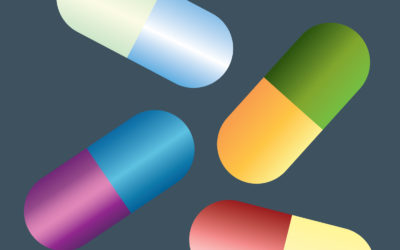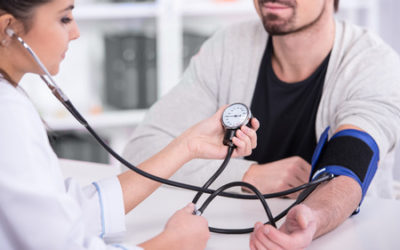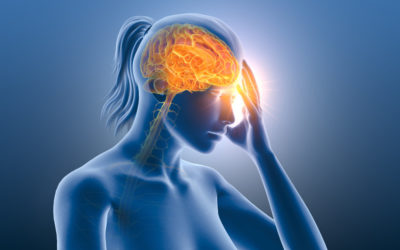There are many medications on the market that can be used to treat depression. Two of the most popular prescriptions are Effexor (venlafaxine) and Zoloft (sertraline). They are both considered antidepressants, but there are some important differences between these medicines. Let’s take a look at each of these medications and how they treat depression.
Are antidepressants right for you?
There are many medications used to treat depression and they work in different ways. The most common class of antidepressants prescribed are SSRIs, which stands for selective serotonin reuptake inhibitors. This class of medication generally causes fewer side effects and is less likely to cause problems at higher doses. SNRIs (serotonin and norepinephrine reuptake inhibitors) are another common type of antidepressant prescribed by doctors. Sometimes a combination of medications is needed to get the desired relief from depression and associated symptoms. Studies show that medication combined with therapy/counseling is the most effective treatment option for depression. It is important to talk with your doctor about your specific symptoms to determine what treatment options are best for you.
Effexor vs Zoloft for Depression: What is the Difference?
Zoloft (sertraline HCI)
Zoloft, or sertraline, is an SSRI. Serotonin is a chemical messenger in your brain that is thought to regulate mood, happiness, and anxiety; these medicines work by increasing the level of serotonin in your brain. Along with other medications in the SSRI class, sertraline is considered a first line treatment option for depression because they are effective and usually well tolerated.
Zoloft is approved to treat major depressive disorder, obsessive-compulsive disorder, panic disorder, posttraumatic stress disorder, premenstrual dysphoric disorder, and social anxiety. It has also been used to treat binge eating disorder, body dysmorphic disorder, bulimia, generalized anxiety disorder, and premature ejaculation, although it is not approved by the FDA to treat these conditions.
The most common side effects caused by Zoloft are:
- sleep disturbances – drowsiness or insomnia/agitation
- GI issues such as diarrhea, cramping, or nausea
- dry mouth
- sexual dysfunction, including decreased sex drive, delayed ejactulation, and erectile dysfunction
Other side effects may include:
- nervousness
- dizziness
- headaches
- skin rash
- changes in your heart rhythm
- constipation
- changes in appetite
- weight loss
Effexor (venlafaxine HCI)
Effexor, or venlafaxine, is an SNRI. Along with increasing the amount of serotonin in your brain, SNRIs also increase norepinephrine, which can improve energy and alertness. Effexor is available as immediate release tablets as well as extended release capsules and tablets (called Effexor XR).
Effexor is approved to treat major depressive disorder. Effexor XR is approved to treat generalized anxiety disorder, panic disorder, and social anxiety disorder. It is also used off-label (meaning not approved by the FDA) to treat narcolepsy, neuropathic pain, obsessive-compulsive disorder, posttraumatic stress disorder, premenstrual dysphoric disorder, vasomotor symptoms associated with menopause, and for migraine prevention.
The most common side effects of Effexor include:
- sleep disturbances – drowsiness or insomnia/agitation
- GI issues such as nausea or vomiting and decreased appetite
- weight changes (gain or loss)
- sexual dysfunction, including decreased sex drive, delayed ejactulation, and erectile dysfunction
- Sweating
- Dry mouth
Other side effects may include:
- Headaches
- Constipation
- Anxiety
- Strange dreams
- Blurred vision
- Seizures
Other Important Things To Know
Your doctor will help you decide whether Effexor vs Zoloft for depression is right for you. Medications for depression are best tolerated when started at a low dose and increased slowly over a period of several weeks.
It is important to know that antidepressants can increase the risk of suicidal thinking and behavior, especially in children, adolescents, and young adults. Anyone who starts a medication for depression should be monitored closely, especially within the first few weeks.
It is also important to give depression medications time to work. Initial signs of improvement may be seen within 1-2 weeks, but it often takes at least 4-6 weeks to see their full effect. Because everyone is different, it may take time to find the right medication and dosage for you.
Get Discounts on Your Medications
Prescription medications can be expensive, even with insurance. With a discount drug card like Easy Drug Card, you could save up to 80% on your prescriptions. Easy Drug Card is accepted at over 65,000 pharmacies nationwide, can be downloaded and activated instantly, and best of all – it’s completely free. Stop paying full price for your prescriptions and get Easy Drug Card today!
References:
1. https://www.zoloft.com/about-zoloft
2. https://www.effexorxr.com/about-effexorxr
3. Clinical Resource, Choosing and Switching Antidepressants. Pharmacist’s Letter/Prescriber’s Letter. July 2020.
3. Marion, DW. Zoloft. In: UpToDate, Post, TW (Ed), UpToDate, Waltham, MA, 2021.
4. Marion, DW. Effexor. In: UpToDate, Post, TW (Ed), UpToDate, Waltham, MA, 2021.











